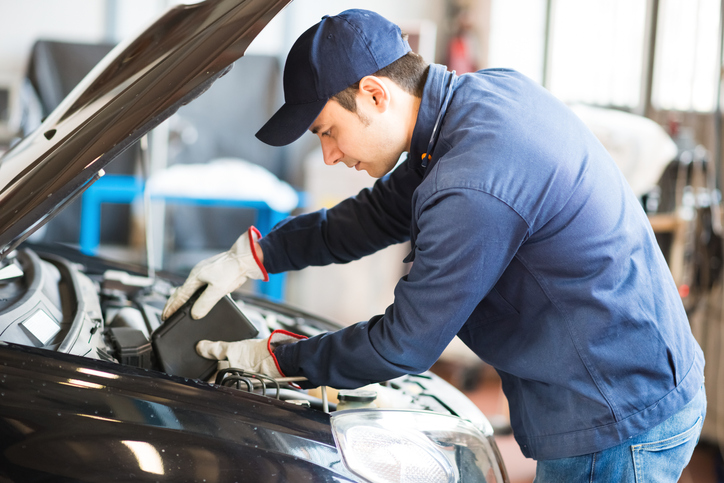
The summer can be the perfect season for road trips and adventures, but it can also be a time for much-needed car maintenance. Extreme heat can significantly damage a vehicle that’s not equipped to handle high temperatures, making summer one of the busiest seasons for mechanics. For those interested in becoming professional auto technicians working on automobiles, understanding how extreme heat causes damage can be particularly useful.
Here’s a quick guide to help you discover some of the common ways a car can be impacted by intense summer heat!
Negative Impacts of High Temperatures on the Battery and Tires
Hot summer days can negatively impact a car’s battery and increase the internal temperature of the vehicle, possibly even causing water to evaporate from the battery’s liquid electrolyte solution. This can shorten the battery’s lifespan, diminishing its ability to hold a charge and start the engine. Auto technicians should also keep an eye out for internal corrosion, checking the battery’s charging output to ensure good performance.
Tires can also be damaged by extreme heat, particularly as the roads become hotter. In these cases, high temperatures work to increase tire pressure and can potentially lead to overinflated tires. This can deform the tire’s shape, decrease the amount of tread, and in extreme cases, even disintegrate the tire’s rubber. Ensuring that tires have the proper amount of pressure in the summer can make a huge difference in the vehicle’s overall safety, function, comfort level, and fuel efficiency.

The Effects of Extreme Heat on a Vehicle’s Cooling System
The cooling system is an essential part of a vehicle, which includes the water pump, thermostat, radiator, hoses, and the coolant overflow tank, to name a few parts. This system experiences added strain in the summer, making it all the more important to ensure top performance. Each part of the cooling system plays a big role. If one part fails, then the entire cooling system breaks down.
Anyone planning to explore a career as an automotive service technician can expect to work on a car’s cooling system in the summer, checking the coolant levels to prevent a spike in engine temperature. Technicians can also inspect the hoses and radiator for any signs of internal corrosion, which can cause leaks—contaminating the coolant, or decreasing its effectiveness.
Checking Oil and Other Fluids as an Automotive Service Technician
Students in auto mechanic training might be interested to know that extreme heat can age engine oil and cause it to evaporate. This can impact its thickness and viscosity—ultimately reducing fuel efficiency, and harming the vehicle’s engine through sludge and varnish deposits (which can accelerate corrosion).

Auto technicians can also check the transmission fluid and the power steering fluid. Extreme heat can damage the transmission and cause overheating, possibly resulting in cracked gears, delayed clutch engagement, or even failed bearings. In the case of power steering fluid, low levels can lead to overheating and ultimately diminish the effectiveness of the car’s power steering capability.
Generally speaking, excessive heat can significantly damage a vehicle and negatively impact its performance. Knowing what to look for in your clients’ vehicles during the hot season lets you help them keep their cars safely on the road.
Are you looking for training opportunities to become an auto technician?
Contact ATC Surrey for more information!


